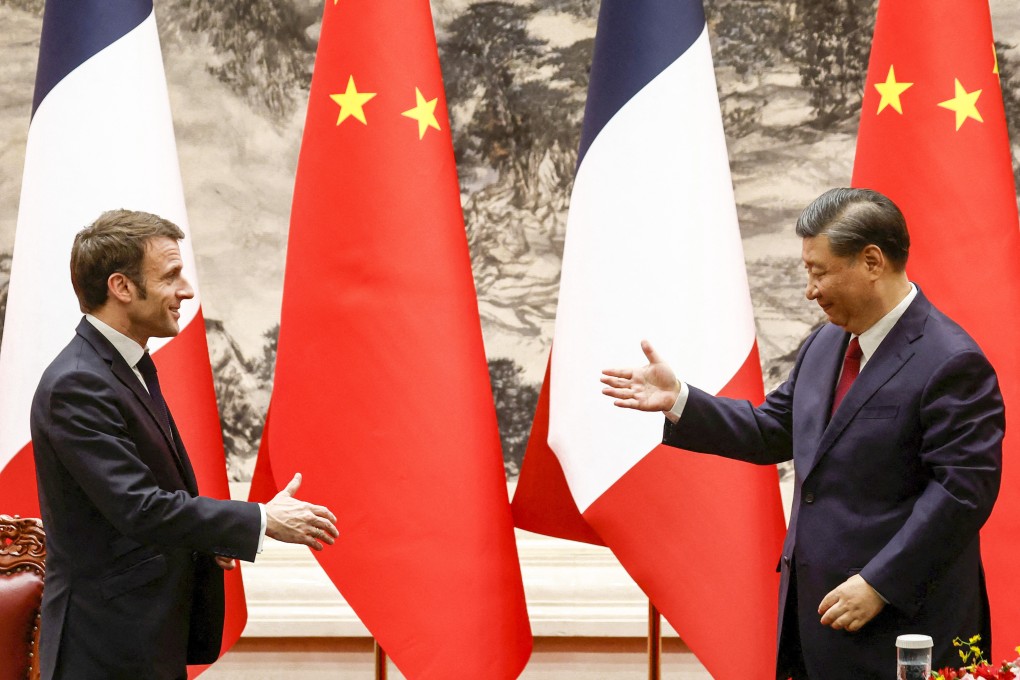Advertisement
Opinion | US must find the courage to give way gracefully in a multipolar world
- China’s diplomacy and several countries’ push for strategic autonomy reflect a changing world
- The US’ relentless pursuit of unipolar hegemony risks creating a new era of global conflict and instability not seen since the Cold War
Reading Time:3 minutes
Why you can trust SCMP
30

French President Emmanuel Macron worked his Gallic flair to success in China, but his charm fell flat at home in the West. Specifically, his call for strategic autonomy to steer clear of US-China tensions over Taiwan drew flak; his effort to solicit Chinese President Xi Jinping’s help on Ukraine was also met with scepticism.
Advertisement
Later, Xi did take a call from Ukrainian President Volodymyr Zelensky, possibly to the relief of the under-pressure Macron. After what Zelensky characterised as “a long and meaningful phone call” with Xi, China agreed to send a special envoy to Ukraine, while Kyiv named an ambassador to Beijing.
Coming on the heels of the China-brokered Saudi-Iran rapprochement, last month’s Macron-Xi-Zelensky diplomatic balancing act has nudged the world, yet again, closer to multipolarity.
France gave the Statue of Liberty to the United States and is its oldest ally in Europe, but the US deems China its greatest “consequential threat”. Yet, as it turned out, “democratic” Macron discussed global issues with “autocratic” Xi.
The Chinese president then spoke to “democratic” Zelensky, who is backed by the US and is leading his nation in a war with Russia. Earlier this year, Xi met “autocratic” Russian President Vladimir Putin, despite China’s position that nations have the right to safeguard their territorial integrity.
Advertisement
To state the obvious, democratic values are sacrosanct. But it is equally evident that pigeonholing a nation as autocratic or democratic is not only an oversimplification but, more importantly, counterproductive.

Advertisement
